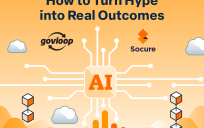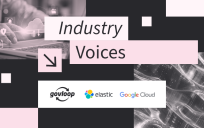When new technology emerges, organizations naturally want to hire people who have the skills to work with it. But AI is a bit of a mystery in that regard; we’re still learning about its capabilities and what we can teach it to do. AI experts may be few and far between.
The October 2023 Executive Order on Safe, Secure, and Trustworthy Artificial Intelligence recognized both the dangers and the potential of AI for workers. It outlined goals for supporting rather than undermining employees and for maximizing benefits in building a productive and innovative AI ecosystem. It also called for a “governmentwide AI talent search.”
So, while some government workers may be worried that AI will take their jobs, the real issue to work out is how it will make our jobs. Workforce experts have explained how we can view AI as an assistant rather than a substitute employee. Thus, organizations are beginning to look for employees who are skilled in AI, but what are AI skills? They may not be the typical software development skills that come to mind when we’re considering bringing in new technologies.
According to a list of competencies published by the Chief Human Capital Officer’s Council, an AI-empowered employee many demonstrates qualities that are very… human. And not just any human, but one who has developed a certain level of maturity, cultural awareness and capacity for critical thought. That makes sense because if we want machines to imitate our intelligence, we’ll have to teach them using our best human skills.
The 44 general competencies and 14 technical competencies could come from a variety of educational and professional experiences, and they truly run the gamut. As agencies begin to use AI or even just consider using it, they will want to evaluate how their new hires demonstrate or have the potential to grasp these skills.
You can view the entire list here, but below are a few examples of AI competencies that may get your recruitment gears moving:
External Awareness
Understands and keeps up to date on local, national, and international policies and trends that affect the organization and shape stakeholders’ views; is aware of the organization’s impact on the external environment.
Mental Visualization
Sees things in the mind by mentally organizing and processing symbols, pictures, graphs, objects, or other information (for example, sees a building from a blueprint, or sees the flow of work activities from reading a work plan).
Reading Comprehension
Understands and interprets written material, including technical material, rules, regulations, instructions, reports, charts, graphs, or tables; applies what is learned from written material to specific situations.
Reasoning
Identifies rules, principles, or relationships that explain facts, data, or other information; analyzes information and makes correct inferences or draws accurate conclusions.
Emotional Intelligence
Conducts work with empathy for the complexities of policy implementation and the role of civil servants at all levels of government, and with a high degree of emotional intelligence, humility, and respect for different lived experiences.
Interpersonal Skills
Treats others with courtesy, sensitivity, and respect. Considers and responds appropriately to the needs and feelings of different people in different situations.
Influencing/Negotiating
Persuades others; builds consensus through give and take; gains cooperation from others to obtain information and accomplish goals.
Oral Communication
Makes clear and convincing oral presentations. Listens effectively; clarifies information as needed. Effectively communicates technical information to non-technical audiences and stakeholders.
At the end of the day (or at the beginning for that matter), AI will always be reliant on humans to give it human strengths. It doesn’t have lived experiences or the comprehension that comes from living a human life. But, as employees train their new “assistants,” drawing on the skills that make us human will foster productive growth for our artificially intelligent friends. Ultimately, understanding and investing in humanistic skills will make agencies more prepared to incorporate AI and use it to improve their processes and service delivery.





Leave a Reply
You must be logged in to post a comment.